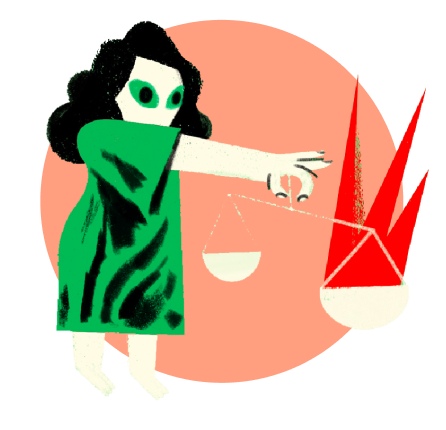When we talk about digital rights, we refer to human rights in the digital spheres. There is a tendency to think that online and offline spaces are separate spaces, but we have already seen that they are fully related and constantly affect each other. Therefore, no new rights are created from the digital, but rather pre-existing fundamental rights apply equally in these spaces.
By not having free access to ICTs and the digital ecosystem, digital rights for full development such as the right to freedom of expression, the right to privacy, the right to information, sexual and reproductive rights and the right to non-discrimination are lost. That is, any woman or girl with or without access to technology is exposed to be a victim of this type of violence, which has a direct impact on the ability of empowerment or equality for women.
Some of the digital rights are:
Right to privacy:

It is the right to "leave us alone" or not to suffer arbitrary interference. The right that allows us to exercise other rights. That is, it is not about hiding the things we want to keep secret, it is about our right to choose when and for what purposes we want to disclose certain information.
The American Convention on Human Rights, ratified on August 24, 1989, in its article 11 "Right to privacy" protects individuals from "arbitrary and abusive interference with their privacy, family, home or correspondence" and recognizes that "everyone has the right to the protection of the law against such interference or attacks". Similarly, Article 17 of the International Covenant on Civil and Political Rights (ICCPR) protects individuals from "unlawful interference with their privacy, family, home or correspondence". Article 33 of the National Constitution of Paraguay recognizes and guarantees the right to privacy.
Right to freedom of speech:
Article 13 of the American Convention on Human Rights states that "everyone has the right to freedom of thought and expression. This right shall include freedom to seek, receive and impart information and ideas of all kinds, regardless of frontiers, either orally, in writing or in print, in the form of art, or through any other media of his choice. In the same sense, the International Covenant on Civil and Political Rights in its Art. 19 recognizes this right.
The rights to privacy and freedom of speech are related rights: "the right to privacy is often understood as an essential requirement for the realization of the right to freedom of expression". This can be observed in everyday situations: do we behave freely when we know we are being watched?
Article 26 of the National Constitution of Paraguay recognizes and guarantees the right to freedom of speech.
The rights to privacy and freedom of speech are related rights:
"the right to privacy is often understood as an essential requirement for the realization of the right to freedom of expression". This can be observed in everyday situations: do we behave freely when we know we are being watched?
Article 26 of the National Constitution of Paraguay recognizes and guarantees the right to freedom of speech. Right of access to justice and judicial guarantees The American Convention on Human Rights recognizes these rights in its articles 8 and 25: "Everyone has the right to an effective remedy by the competent national tribunals for acts that violate his fundamental rights recognized by the constitution or by law". The omission on the part of the States of due process, laws and defense mechanisms against violations of human rights on the Internet, violence on the Internet, or crimes committed in the digital environment, contradicts the right of access to justice with a gender perspective

